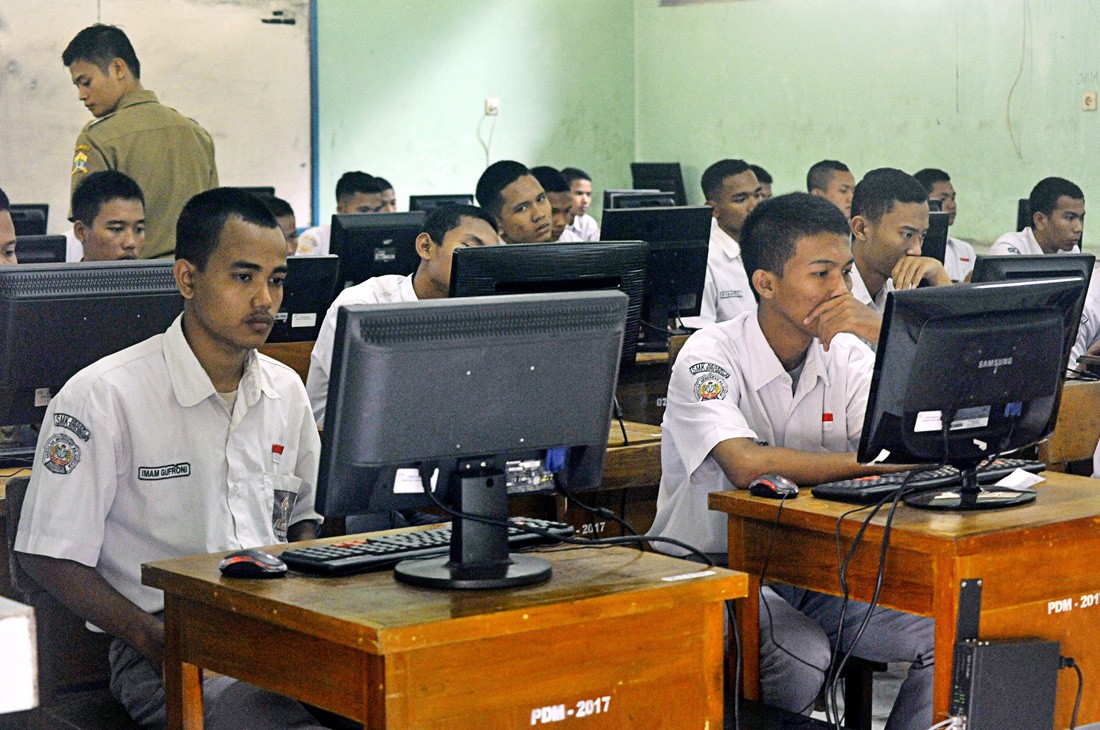Popular Reads
Top Results
Can't find what you're looking for?
View all search resultsPopular Reads
Top Results
Can't find what you're looking for?
View all search resultsMismatch between skills, jobs
Studies by the World Bank and Asian Development Bank on employment have concluded that what is acutely lacking in Indonesia is well-targeted vocational education.
Change text size
Gift Premium Articles
to Anyone
O
f the key economic data announced by Statistics Indonesia (BPS) on Monday, the 5.17 percent economic growth for the third quarter, which had been expected, caught the most attention of the mass media. Yet what we find most concerning is the large number of vocational school graduates among the 7 million unemployed.
The fact that vocational school graduates comprise such a large proportion, 11.3 percent, of the unemployed, as against 8 percent of high school graduates and 12 percent of university or college graduates, the remainder having only a junior high or elementary education, shows a glaring mismatch between labor-market demand and the skills available.
This is quite worrisome because as the world and the nature of work are increasingly reshaped by technological changes, skills development and human capital will play an even greater role in our future economic development. The government realizes that one of the most effective ways of addressing the skills gap is by massively expanding vocational education and has accordingly spent more on developing vocational training institutes.
But the high level of unemployment among vocational school graduates appears to indicate that many of the training centers are inadequately equipped and their curricula do not provide the kind of skills demanded in the labor market.
The experience of many other countries in the ASEAN region show that improved access to better vocational education can contribute greatly to higher income for workers and help bridge the skills mismatch that causes what economists call structural unemployment whereby job vacancies cannot be filled by the skills available.
Studies by the World Bank and Asian Development Bank on employment have concluded that what is acutely lacking in Indonesia is well-targeted vocational education. If the skills profile of the human capital does not evolve along with the demands of the labor market, a skills mismatch will continue to be a major obstacle to resolving unemployment problems.
Look at how many companies, notably foreign construction companies that have to meet tight building schedules, are forced to bring in more expensive workers from overseas. In fact, the education and skills mismatch in jobs poses pressing challenges for local corporations in expanding their business.
We think better communication and information exchanges among local labor offices, business associations and the Investment Coordinating Board (BKPM) would allow vocational schools and other training centers to keep up to date on the market demand for skills. We know that companies that apply for investment licenses from the BKPM are required to submit detailed plans on their employment needs.
Likewise, jobseekers have also been encouraged to register at their local labor offices. This data will enable vocational schools to design better market-oriented training programs. The whole process should be well-targeted, right the way from planning to identifying the need for specific skills. Technology is changing the skills that are being rewarded in the labor market, vocational schools must adapt.










